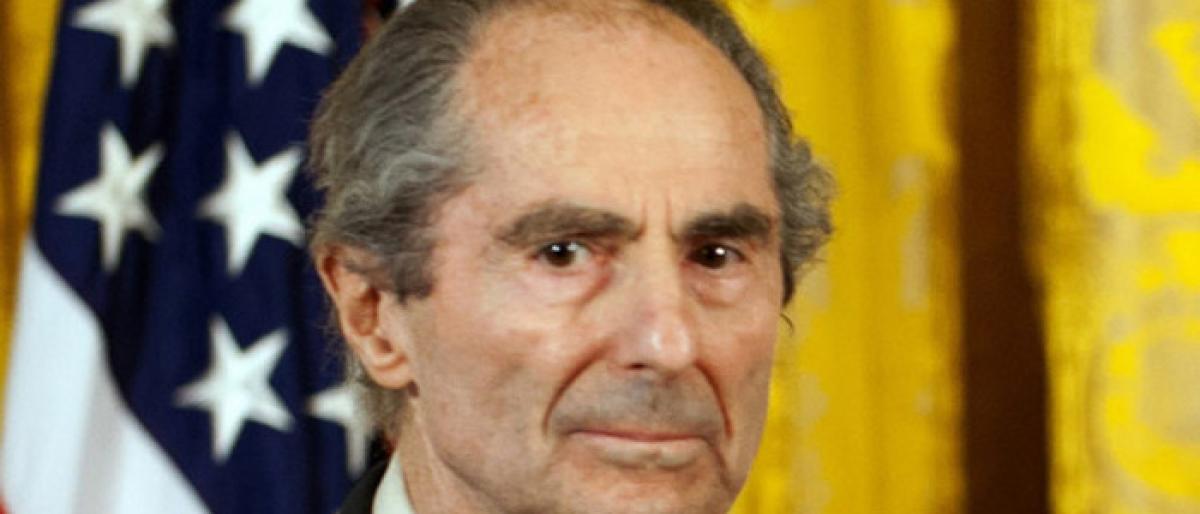Roth, a towering novelist

“Updike and Bellow hold their flashlights out into the world, reveal the world as it is now,” Roth once said. “I dig a hole and shine my flashlight into the hole.” Philip Roth is no more. Reports suggest he passed away of a congestive heart failure.
“Updike and Bellow hold their flashlights out into the world, reveal the world as it is now,” Roth once said. “I dig a hole and shine my flashlight into the hole.” Philip Roth is no more. Reports suggest he passed away of a congestive heart failure.
What a loss it is to the literary world! Roth was ever-changing in his subjects and his kaleidoscopic and variably moods were often called erratic, inconstant and inconsistent. But such was the nature of Roth who dwelt deep inside the dark recesses of the heart not to miss anything. He, no doubt, sounded blackly comic as the critics called him, but none would dispute his pre-eminence. But was Roth defined properly by anyone?
A passionate student of the American history and American vernacular he, however, championed Eastern European writers and poets like Primo Levi, Ivan Klima and Bruno Schulz. Proving to be a controversial writer early on, Roth angered a number of Jewish readers with the story, ‘Defender of the Faith,’ published in The New Yorker in 1957.
"I was suddenly being assailed as an anti-Semite, this thing that I had detested all my life, and a self-hating Jew," Roth later explained. In 1959, Roth became one of the rising stars of American fiction with the publication of Goodbye, Columbus.
This work won the National Book Award and was later turned into a feature film starring Richard Benjamin. Nearly a decade later, Roth found himself immersed in a sea of controversy over his novel ‘Portnoy's Complaint’ (1969). The book was considered scandalous by some for its depiction of masturbation.
"Portnoy was blunt about sex," Roth explained to People magazine. Portnoy's Complaint became a huge commercial hit. By the end of the 1970s, Roth had begun writing works that featured his literary alter ego, writer Nathan Zuckerman. This character first appeared in ‘The Ghost Writer’ (1979) and recurred in such works as ‘Zuckerman Unbound’ (1981) and ‘The Anatomy Lesson.’ While there may be some commonality between Roth and Zuckerman, Roth has insisted that his novels are not autobiographical.
He told media that readers who only see his life in his works "are simply numb to fiction—numb to impersonation, to ventriloquism, to irony, numb to the thousand observations of human life on which a book is built." Roth won the National Book Award again for ‘Sabbath's Theatre’ in 1995. The story revolves around Mickey Sabbath, a former puppeteer, who starts to unravel after the death of one of his lovers.
Three years later, Roth won the Pulitzer Prize for fiction for ‘American Pastoral’ (1997). This novel, part of a trilogy that also includes ‘I Married a Communist’ (1998) and ‘The Human Stain’ (2000), brings back Nathan Zuckerman to help tell the story of Jewish businessman Seymour "Swede" Levov. In the course of a very long career, Roth took on many guises — mainly versions of himself — in the exploration of what it means to be an American, a Jew, a writer, a man as the literary world sums up. Roth never wrote to change or control his readers but only to free them of all 'noise'. RIP Roth.


















